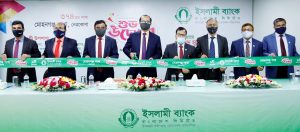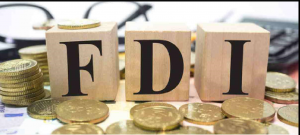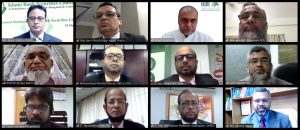Thirteen commercial banks have invested in fixed assets beyond the limit set by the central bank.Bangladesh Bank, in a circular on Aug 12, limited such investment by banks to 30 percent of their paid-up capital to enable greater lending to productive sectors.
But central bank data show that the 13 banks have overshot the ceiling by a good margin.
The data show the Southeast Bank has parked 85.25 percent of its paid-up capital in fixed assets, the highest among 30 private commercial banks.
The building, floor spaces and lands owned by the bank are worth Tk 7.44 billion while its paid-up capital is Tk 8.73 billion.
Bangladesh Bank sources said after the circular was issued that banks with fixed assets above the limit would be asked to raise their capital.
Those failing to do that proportionately within a stipulated time might be asked to liquidate the ‘additional’ assets, they said.
Of the banks exceeding the ceiling, City Bank invested 77.82 percent of its paid-up capital, while Uttara Bank invested 71.79 percent, AB Bank 69.62 percent, Eastern Bank 63.72 percent, Bank Asia 58.62 percent, Dutch Bangla Bank 56.12 percent, IFIC Bank 49.08 percent, Islami Bank 48.24 percent, Mercantile Bank 33.64 percent, Jamuna Bank 33.4 percent, Dhaka Bank 31 percent and Prime Bank 30.09 percent of their respective paid-up capital.
The banks now have to issue right or bonus shares to raise their paid-up capital to keep holding the fixed assets they already own.
Central bankers believe the cap on bank s’ fixed asset holding would help them consolidate their financial base and leave positive impact on the shaky capital market.
A section of commercial bankers support the central bank move.
Eastern Bank Managing Director Ali Reza Iftekhar told bdnews24.com: “I fully support the Bangladesh Bank provision. A control should be there (in the purchase of fixed assets). Fixed assets don’t generate any business. But lending makes business and enhances economic activities.”
He, however, suggested giving time to the banks which had already crossed the ceiling to make adjustments.
“Raising paid-up capital is a time-consuming process. That’s why the banks need to be given time,” he said.
Earlier, the central bank slapped restrictions on the purchase of fixed assets by commercial banks in two circulars issued on Jan 25, 2010 and July 30, 2012.
The 2010 circular required the banks to take the central bank’s permissions before purchasing land, while the other made approval mandatory for buying buildings, floor spaces and shops.
A senior official of the Banking Regulation and Policy Department, wishing not to be named, told bdnews24.com: “Banks are allowed to facilitate investment in trade and industries through collection of deposits. But the aim has been frustrated with banks investing in fixed assets.”
He said the purchase of excessive assets was creating two-pronged problems. It is raising the prices of land and floor spaces on the one hand, while assets are being concentrated in certain quarters on the other, he said.
Islami Bank Bangladesh has its own building at Dilkusha in the capital and floor spaces and land at different places. The bank has sought approval from the central bank to purchase another 10-storey building at Dilkusha.
IFIC Bank is erecting a 21-storey building at Puran Paltan and Southeast Bank its head office in Karwan Bazar. Bank Asia has a large piece of land at Karwan Bazar.
There are also instances of banks acquiring lands and other property of its defaulting borrowers. – bdnews24.com




